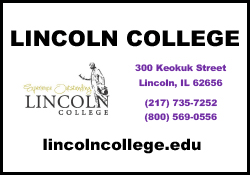|
As measles returns, U.S. states look to
cut vaccine exemptions
 Send a link to a friend
Send a link to a friend
 [May 03, 2019]
By Jonathan Allen [May 03, 2019]
By Jonathan Allen
(Reuters) - Maine could soon prohibit
parents from citing religious or personal beliefs to avoid vaccinating
their children, making the U.S. state one of a half dozen cracking down
during the nation's largest measles outbreak in 25 years.
State legislatures in New York, New Jersey, Oregon, Vermont, Minnesota
and Iowa are looking at similar bills that would only allow exemptions
from vaccinations for medical reasons as determined by the child's
doctor.
The United States has recorded at least 704 measles cases so far this
year in outbreaks that U.S. Health and Human Services Secretary Alex
Azar has called "completely avoidable." https://www.reuters.com/article/us-usa-measles/u-s-measles-outbreak-hits-completely-avoidable-25-year-high-officials-idUSKCN1S51JG
Azar and other officials have largely blamed the outbreaks on the spread
of misinformation, including a belief debunked by scientific studies
that vaccine ingredients can cause autism. This has led to pockets of
lower-than-normal vaccination rates in some communities.

U.S. public health officials declared measles eliminated in 2000,
meaning the disease was no longer a constant presence in the country.
The current outbreak traces its roots to travelers to countries
including Ukraine and Israel facing outbreaks.
Maine's Democratic-controlled Senate could vote on the vaccine measure
as early as Thursday. The state's Democratic-controlled House of
Representatives passed it last month in a nearly party-line vote, with
some Republicans arguing it represented inappropriate government
intrusion into personal belief.
Ryan Tipping, a Democratic member of Maine's House of Representatives
who sponsored the bill, noted in an interview that no major U.S.
religion forbids vaccination.
"I worked with a lot of people of very strong faiths on this bill, and,
when people look, it's hard to find a religious objection to the
incredible amount of good that making these diseases far more rare has
brought to the world," Tipping said.
Governor Janet Mills, a Democrat, did not respond to questions about
whether she would sign the bill into law if it passes the Senate.
It was unclear whether the similar bills in other states will pass. Some
have been reintroduced after failing in earlier sessions.

Other states are considering less restrictive steps to increase
vaccination rates. Washington is poised to pass a bill that would remove
exemptions on personal grounds for the measles, mumps and rubella
vaccine, while leaving in place a religious exemption.
[to top of second column]
|

A vial of the measles, mumps, and rubella virus (MMR) vaccine is
pictured at the International Community Health Services clinic in
Seattle, Washington, U.S., March 20, 2019. REUTERS/Lindsey
Wasson/File Photo

MAINE: 5 PERCENT UNVACCINATED
Maine has one of the lowest vaccination rates in the country, with 5
percent of kindergartners holding a non-medical exemption from
vaccination, compared to a national average of 2 percent, according
to CDC data.
The World Health Organization has said at least 95 percent of a
community must be immunized against measles to achieve the "herd
immunity" needed to protect those unable to get the vaccine such as
infants and people with compromised immune systems.
No measles cases have been recorded in largely rural Maine since
2017, but state officials have been worried by outbreaks of whooping
cough, another childhood disease that can be prevented by
vaccination.
The largest U.S. measles outbreak this year has been in New York
City, clustered in the Orthodox Jewish communities in the borough of
Brooklyn, according to the U.S. Centers for Disease Control and
Prevention and city public health officials.
All 50 states require children to be vaccinated for various diseases
in order to attend public schools, unless they have medical reasons
for exemption.
Only three states already bar all non-medical exemptions, according
to the National Conference of State Legislatures: Mississippi, West
Virginia and California.
While most states allow religious exemptions, Maine is one of 17
states that let parents also opt out based on personal or moral
beliefs.

California outlawed non-medical exemptions in 2015 after a measles
outbreak was traced to the Disneyland theme park. The state saw the
proportion of kindergarten students who received all mandated
vaccines rise to 95.1 percent last year, from 92.8 percent in 2015.
It also saw the number of claimed medical exemptions rise to 0.7
percent from 0.2 percent. Officials have blamed this in part on
unscrupulous doctors issuing spurious exemptions, prompting
lawmakers to consider new legislation that would give the state the
final say over whether a medical exemption is valid.
(This story was refiled to fix misplaced apostrophe in 'nation's' in
paragraph 1)
(Reporting by Jonathan Allen; Editing by Scott Malone and David
Gregorio)
[© 2019 Thomson Reuters. All rights
reserved.]
Copyright 2019 Reuters. All rights reserved. This material may not be published,
broadcast, rewritten or redistributed.
Thompson Reuters is solely responsible for this content. |